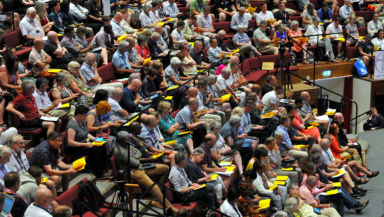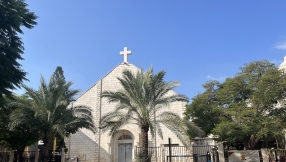
The Church of England's parliamentary body has approved a spending package for the next three years to the tune of £1.6 billion.
The considerable tranche of funding marks a 36 per cent increase on the current triennium and will go on measures to improve clergy pensions and wellbeing, and boost parishes in low-income areas. Safeguarding and other redress schemes will also be covered.
Plans for improving clergy pensions will consider the provision of restitution to affected pensioners and the launch of an independent review into long-term clergy retirement support.
The proposals will be brought back to General Synod for consideration when it meets in February 2026.
A motion passed by Synod on Sunday recognised the challenging financial situation facing dioceses across England.
An amendment to the motion affirmed the prudent management of Church funds while welcoming increased stakeholder engagement in developing the 2026–28 spending plans and the commitment to clergy wellbeing.
It also called for Synod to have a more formal role in shaping the Church's national funding framework, including a full debate on how funds are distributed. This is scheduled to be held early in the next triennium.
On Saturday, Synod approved the National Church Governance Measure, which aims to "simplify and transform the Church’s national structures to better serve, support and encourage local churches".
In what has been described as a "major overhaul" of how the Church is governed, two key bodies - the Archbishops’ Council and Church of England Central Services - will be replaced by a new charity called Church of England National Services (CENS).
The changes are being implemented after a review called for greater efforts to restore trust in Church of England governance and improve transparency.
The Bishop of Guildford, Andrew Watson, who chaired the steering group behind the Measure, told Synod before the vote that the reforms were necessary "so that more effective governance at the national level might better serve and support our parishes, their churches, schools and communities in our calling to pray and work for the coming of God’s Kingdom.”
“This legislation, and the work that lies behind it, has been over four years in development, with widespread consultation at every stage, and significant improvements to the proposals as a result; and the issues of Governance in the Church have only become more acute during that period," he said.













